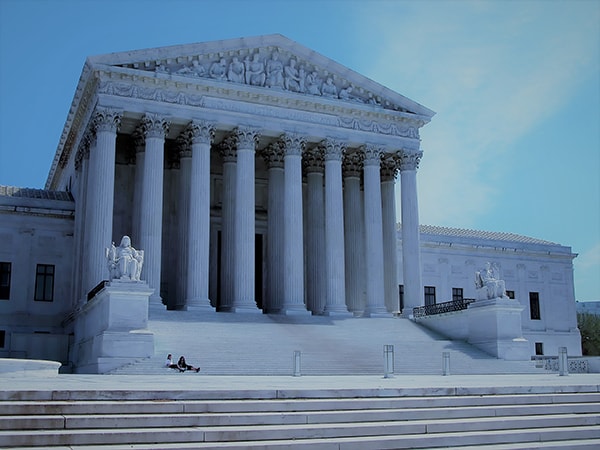Federal Crime Lawyer: Protecting Your Rights Versus Serious Federal Charges
Federal Crime Lawyer: Protecting Your Rights Versus Serious Federal Charges
Blog Article
Demystifying the Refine of Federal Appeals: What You Required to Know
Browsing the complex realm of federal charms can usually appear like traversing uncharted waters for those unknown with the procedure. Recognizing the subtleties of appellate court territory, the ins and outs of filing a notification of appeal, offering an engaging short, and making a convincing oral disagreement are vital parts that can significantly impact the outcome of a situation. By untangling the layers of intricacy surrounding federal allures, people can gain a clearer insight into the systems that regulate this critical point of the lawful system.
Understanding Federal Appeals Refine
Diving right into the intricate world of the federal allures procedure reveals a organized and methodical journey via the judicial system. Federal allures function as a vital mechanism for evaluating decisions made by reduced courts. Recognizing this process is important for anybody associated with legal process at the federal level.
The procedure usually starts with a party dissatisfied with a lower court's judgment submitting a notification of allure. This causes a review by a higher court, where a panel of courts evaluates the legal debates presented by both celebrations. Briefs detailing the lawful reasoning behind each celebration's position are sent, and dental debates might be heard to clear up complex issues.
The appellate court's decision is based on a complete assessment of the lower court's proceedings and the debates offered. Once the appellate court gets to a choice, it can attest, turn around, remand, or customize the lower court's ruling, giving quality and finality to the lawful dispute.
Appellate Court Territory Discussed
Appellate court territory refers to the range of situations that a specific appellate court has the power to decide and evaluate upon. Unlike trial courts that listen to cases for the initial time, appellate courts are limited to evaluating choices made by lower courts.
Appellate courts have jurisdiction over particular sorts of instances, normally those including legal mistakes, procedural concerns, or questions of legislation rather than factual conflicts. The jurisdiction of appellate courts is usually described in laws and laws that regulate the court system. Understanding appellate court territory is important for celebrations associated with the allures process as it figures out whether a case is eligible for testimonial and the degree to which the appellate court can intervene in the reduced court's decision.
Filing a Notification of Allure
The preliminary step in beginning the government allures process entails submitting a Notification of Appeal with the suitable appellate court. This critical paper formally alerts the court and the various other parties entailed in the situation that the appealing party intends to seek a review of the reduced court's choice. Submitting a Notice of Appeal is a stringent step-by-step requirement that establishes the appellate process in activity.
When preparing the Notice of Appeal, it is essential to make certain compliance with the certain guidelines and standards of the relevant appellate court. federal crime lawyer. The paper must typically include details such as the situation name, the reduced court's name, the day of the judgment being appealed, and a concise statement suggesting the grounds for the charm

Rundown and Oral Debate
In the appellate process, providing created briefs and taking part in dental debates play crucial duties in promoting for the appealing celebration's position prior to the appellate court. Briefs are extensive legal papers that lay out the celebrations' debates, lawful authorities, and evaluation supporting their positions. These created submissions offer the court with a detailed understanding of the realities of the case, the relevant law, and why the appealing celebration believes the reduced court's decision ought to be rescinded.
Following the submission and evaluation of the briefs, dental disagreements provide the events an opportunity to more clarify their settings, deal with any kind of questions the appellate courts may have, and emphasize bottom lines from their composed briefs. Dental arguments are an opportunity for the attorneys to convince the judges through verbal advocacy and feedbacks to inquiries from the bench.
Both the written briefs and dental debates are critical parts of the appellate process, enabling parties to offer their case completely and compellingly prior to the appellate court. - federal appeal attorneys
Getting the Appellate Court Choice
Upon conclusion of oral disagreements and entry of composed briefs, the next essential phase in the appellate procedure involves waiting for the crucial judgment from the appellate court. This duration of anticipation can be full of a mix of stress and anxiety and hope for parties entailed in the appeal. The appellate court's choice is generally provided in a written layout and outlines the court's final thoughts on the lawful concerns offered, the thinking behind their choice, and the judgment rendered. The moment frame for receiving the appellate court's choice can differ, but courts strive to provide prompt resolutions. When the choice is provided, events must carefully evaluate the court's ruling to understand the outcome and identify any type of more actions that may be necessary. Whether the appellate court verifies, turns around, or remands the lower court's choice, comprehending the implications of the ruling is critical for all celebrations entailed in the appellate procedure. For that reason, immediately reviewing and comprehending the appellate court's decision is necessary in browsing the next action in the lawful proceedings.
Conclusion
Recognizing the appellate court territory, submitting a notification of charm, preparing briefs, and offering oral arguments are all essential parts of this procedure. Inevitably, getting the appellate court decision can give quality and resolution to legal conflicts.
As we progress from understanding the government charms process to studying the details of appellate court jurisdiction, a basic aspect comes to light concerning the authority and limits of these higher courts in the lawful landscape. Appellate court territory refers to the scope of situations that federal crime appeal lawyers in rhode island a certain appellate court has the power to choose and assess upon. Unlike test courts that hear cases for the first time, appellate courts are restricted to assessing decisions made by reduced courts. Understanding appellate court jurisdiction is crucial for parties included in the allures procedure as it identifies whether an instance is eligible for testimonial and the degree to which the appellate court can intervene in the reduced court's choice.

Report this page